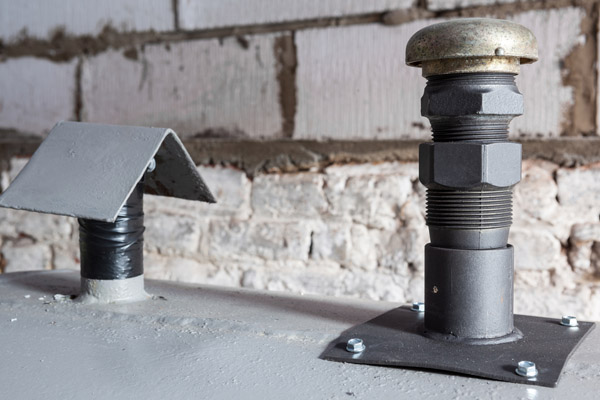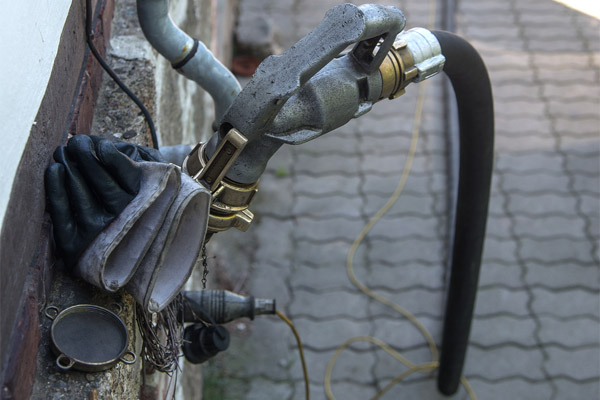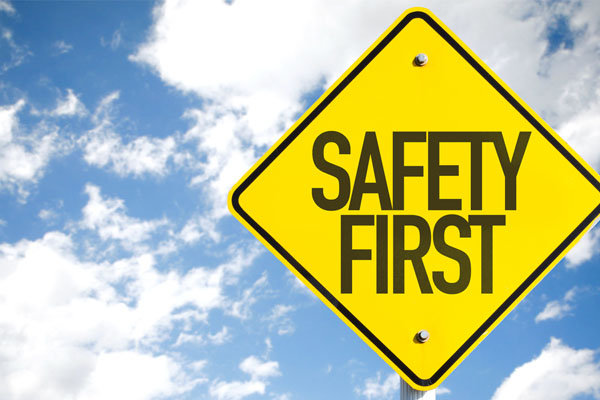What Is That Whistling Sound During An Oil Delivery?

The process of filling an oil tank is unfamiliar for many, especially new heating oil customers. However, even if that’s the case, most oil delivery companies will gladly explain every step. Generally, refilling an oil tank is very simple and quick if the system is in good condition. But when we deliver fuel oil to new customers, there are many times when the homeowner asks us about the whistling sound that they hear coming from the tank. They may think that something is wrong. However, there’s nothing to worry about as this noise comes from the oil tank vent alarm. The tank is supposed to make this sound during the refilling process.
In this article, we’ll go into more detail about this whistling sound and why it’s essential for heating oil systems.
The Source of The Sound During A Fuel Oil Delivery
Contents
As a household uses more oil, the amount inside of the tank will naturally decrease. The empty space is replaced by air. When 70% of the tank is depleted, it is time to call for a refill.
Heating oil is usually delivered in large trucks. The truck is equipped with large hoses that connect to the tank. During the oil delivery, they’ll open the nozzle on the hose that allows the fuel to flow through.
Once the oil starts filling the tank, it will immediately push out the air that is inside the tank. All tanks are equipped with a vent alarm. During a delivery, this alarm will immediately produce a very loud whistling sound (heard all the way to the truck) as the air passes through.
When Does The Oil Tank Vent Alarm Stop Producing Sound?

As long as the air passes through the vent alarm, the whistling sound will continue to be heard. But as soon as it stops, the delivery personnel will immediately close the nozzle to stop the oil flow from the truck.
Why? Because once the vent alarm stops producing sound, that’s a great indication that the tank is full. This is what makes the vent alarm important to the refilling process.
This whole refilling process is done manually, especially that every tank comes in a different capacity. On top of that, if the tank is buried underground, there’s no way to know how much oil is needed.
Why An Oil Tank Alarm Is Important

The vent alarm must work well because it signals how much refilling a tank needs. As mentioned above, in some cases, there’s no way to know whether a tank is full or not. Plus, purely guessing is a considerable risk.
Because of this, most heating oil companies don’t offer refills when they don’t hear a whistle. They will often just open the nozzle carefully to let a small amount of liquid to flow out. If they don’t hear anything, they will shut everything down as soon as possible.
There’s also no need to wait for a few seconds or minutes for the sound because vent alarms should produce a whistle as soon as air comes out. And without hearing that signal, no one will know when to stop. Oil might spill, which can endanger anyone at home.
Therefore, this vent alarm serves as a safety precaution. And if you don’t hear a whistling sound, you can check the things below to find out the reason for this lack of sound.
Reasons For Lack Of Sound During A Home Heating Oil Delivery

Incorrect Connection
This may be uncommon, but it’s possible that the lack of a whistling sound is possible because the tank is improperly connected to the pipes. It could be that new homeowners are trying to fill a tank that has already been removed without prior knowledge, or connections have been broken and needed to be fixed.
Damaged Seals
Another reason is that there could be an opening that allows air to escape before it even reaches the vent alarm.
For the whistling sound to happen, the air must flow only in one direction, and that is only through the vent pipe. If there are damaged seals, they should be sealed first before the oil delivery company can start refilling the tank.
Problematic Vent Pipe
It could also be that the vent pipe has some problems. One common example is when it gets clogged by insect nests or other debris. When this happens, the air isn’t able to flow out smoothly, or there is a pressure build-up. In either case, the tank would sustain considerable damage. So, check the pipes and unclog them, too, if necessary.
Broken Whistle
Lastly, it could also be that the whistle is broken. Because it has holes, it’s possible that insects and other debris are trapped inside these holes. If this is the case, it just needs to be unplugged so that the air can pass through and the whistling sound is made.
At Miller Oil Company, the driver will check the tank first for a whistling sound. If they don’t hear one, the oil delivery cannot take place. We can send a technician to visit your home, check the tank, and perform the necessary repairs or replacements.
If you have more questions about this whole process, don’t hesitate to give us a call. We’ll be happy to answer all of your questions.
Call Miller Oil Company For All Of Your Home Comfort Requirements

Miller Oil Company provides the best cooling and heating services in Hartford County, Connecticut. We employ top HVAC technicians who are certified and offer superior HVAC installations, repairs, tune-ups, and replacements. Every one of our knowledgeable technicians has the experience to correctly service your HVAC.
By working with Miller Oil Company, you will receive the best service costs for cooling and heating in the region. With our repair and maintenance services, you will find that your comfort and energy efficiency are improved and your home cooling and heating costs are reduced. If you require a replacement HVAC unit, we can suggest the most appropriate model for your house that is within your budget. We include a satisfaction guarantee for all of our work.
We also offer superior heating oil deliveries. You can choose from one of our oil delivery plans or financing options. This way, you can customize your oil deliveries to meet your needs. We use high-quality oil and all of our deliveries are fast and reliable. Give Miller Oil Company a call today to learn more.
Click here to contact us today or give us a call at (860) 745-0326 if you have any questions.